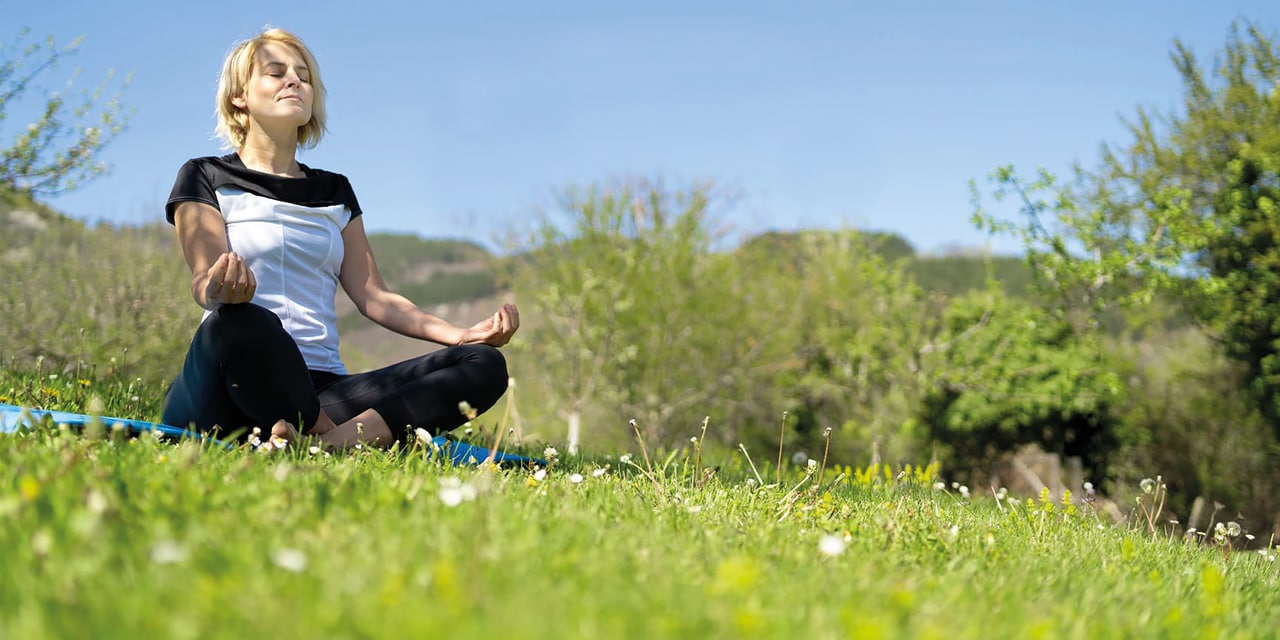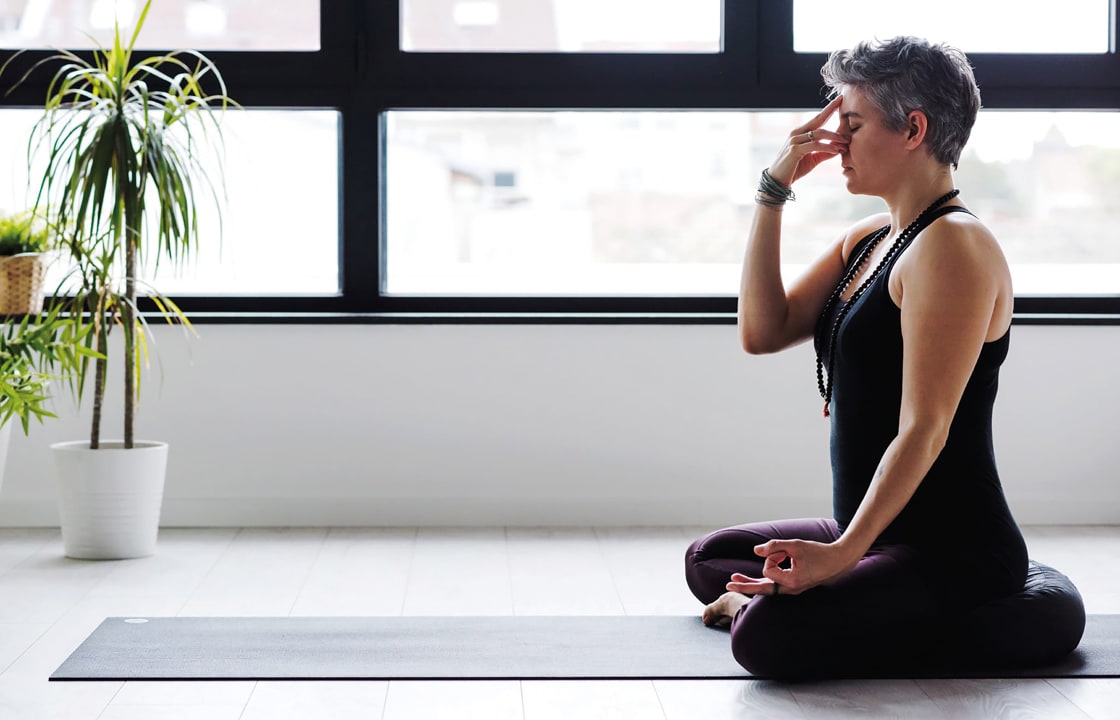
Journeying into perimenopause
Simple ways we can we honour and accept the changes of perimenopause to help make the transition more manageable. By Sally Parkes
A woman’s life is made up of several life cycles, with her midlife cycle known as perimenopause, occurring, on average, from the ages of 40-45 (although it can happen earlier for some).
Also known as ‘menopausal transition’, which means ‘around menopause’, perimenopause refers to the time when a woman’s body makes its natural transition towards menopause and marks the end of her reproductive years.
This transitional time is triggered via a change in the levels of oestrogen, the main female hormone, being released unevenly, resulting in changes to the menstrual cycle which may become heavier or lighter and/or lengthen or shorten.
She may also experience menstrual cycles where ovulation does not occur due to a drop in the release of progesterone.
The perimenopause period is considered to be over once a woman has gone through a year of no periods, where she will now enter her next life cycle known as menopause. Symptoms of the former can include irregular periods, a decline in fertility, hot flushes (often followed by feeling very cold), joint pain, migraines, changes in sexual desire, vaginal atrophy, bladder dysfunction, weight gain (especially around the abdomen), memory loss, brain ‘fog’ and fluctuations in mood which can sometimes lead to an increase in anxiety and/or depression.
Understandably then, there is often much negativity around perimenopause and the menopause, with the media and pharmaceutical industry largely focusing on eradicating such symptoms via hormone replacement therapy (HRT), antidepressants, sleeping aids and weight loss plans.

While this can be very helpful, even life changing, for some women it could be suggested that by glossing over perimenopause, that by not honouring a woman’s rite of passage to this huge life event, that we are missing the lessons it can teach us.
For example, this can be a powerful time of transition for some, where the mask of who we thought we should be in our younger years starts to crumble, allowing us to be our true selves whilst discovering and journeying deeply into and with our inner wisdom. Some women even find a level of creativity that they never knew existed before, leading them to find new purpose and ease in the second half of life.
“Perimenopause and menopause should be treated as the rite of passage that they are. If not celebrated, then at least accepted, acknowledged and honoured” - Gillian Anderson, actress.
So how can we honour and accept these changes to help make this inevitable transition more manageable? Here are some suggestions:
Allowing Space:
Allow ourselves extra time for these changes to take place. For example, allow time for self-care, deep rest and reflection by giving yourself more time to move through life.
Acceptance:
It can be of huge relief when we understand that there is a very valid reason why we may suddenly look, feel and think differently, and not be able to work in the way we used to, and that this is all normal and okay.
Letting Go:
The release of past feminine life cycles can also allow us to release old patterns that no longer serve us, freeing up space for a new and more bespoke approach to life.
Be Kind:
Being kind to ourselves goes a long way. We are often our own worst critic and it is not uncommon for us to compare ourselves to our ‘old self’ at this time in life. Next time a negative inner dialogue begins, ask, ‘would you speak to a friend in such a way?’ If the answer is no, then practice replacing the dialogue with kind words that could be applied to both of you.
Seek Support:
The effect of perimenopause and menopause on our mental and physical wellbeing as well as our close relationships with both ourselves and others can be profoundly life changing and deserves to be acknowledged and supported. Possible pillars of support can come in the form of your doctor (medical and/or holistic), family, friends, online classes, support groups and podcasts. Ensure you take the time you deserve to explore such avenues, and their potential in supporting you in this deeply personal journey, towards being the profoundly wise and astounding woman that you truly are.
“Although women have been taught to dread menopause, this life stage ushers in the springtime of the second half of life and is often accompanied by surges in creativity, vitality, new-found ambition, and the need to be of meaningful service to the community in a larger way” - Christiane Northrup, M.D.
Sally Parkes BSc runs 200hr, Yin, prenatal, postnatal and fertility yoga teacher training. @sallyparkesyoga @sallyparkespregnancyyoga



